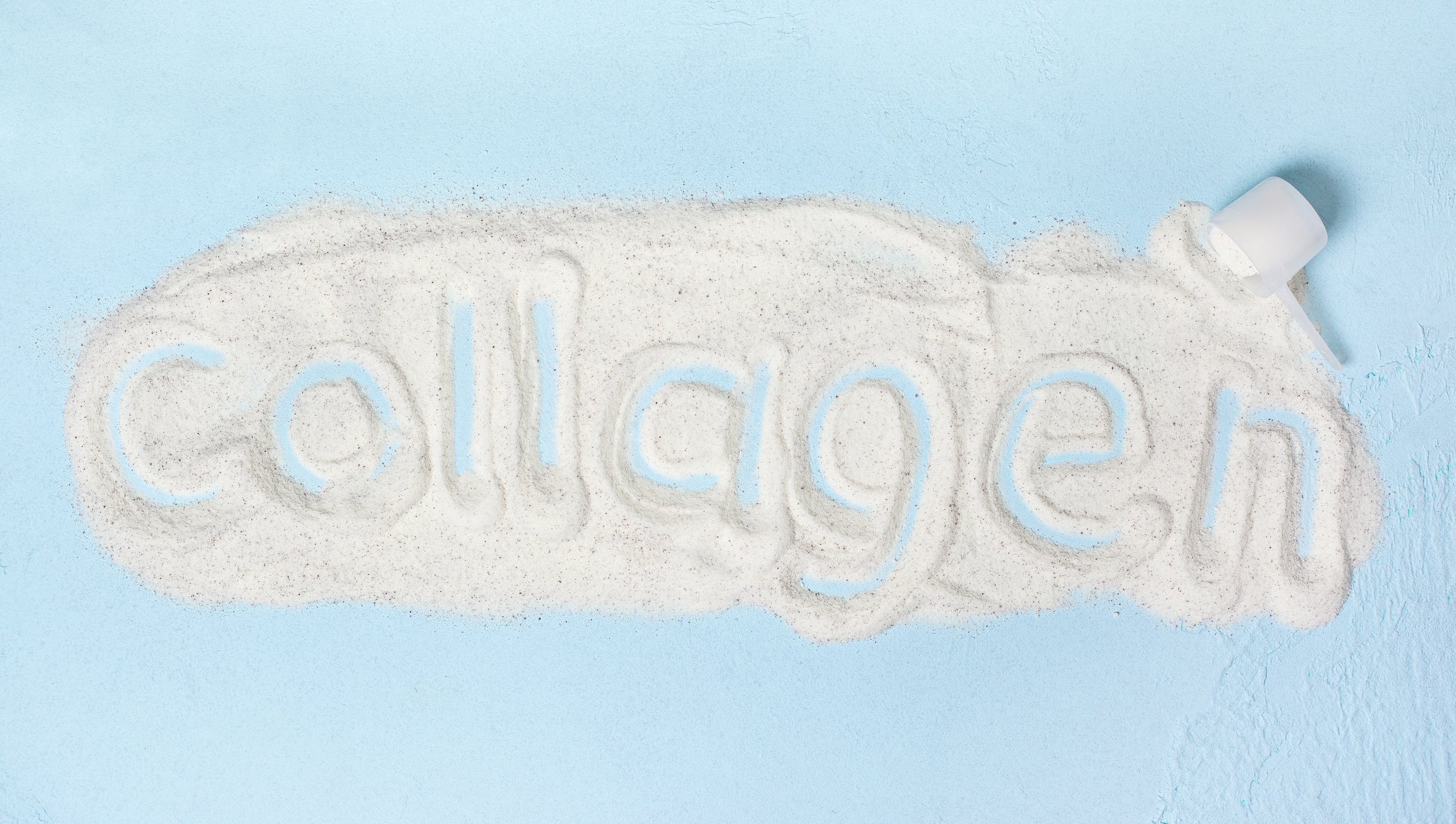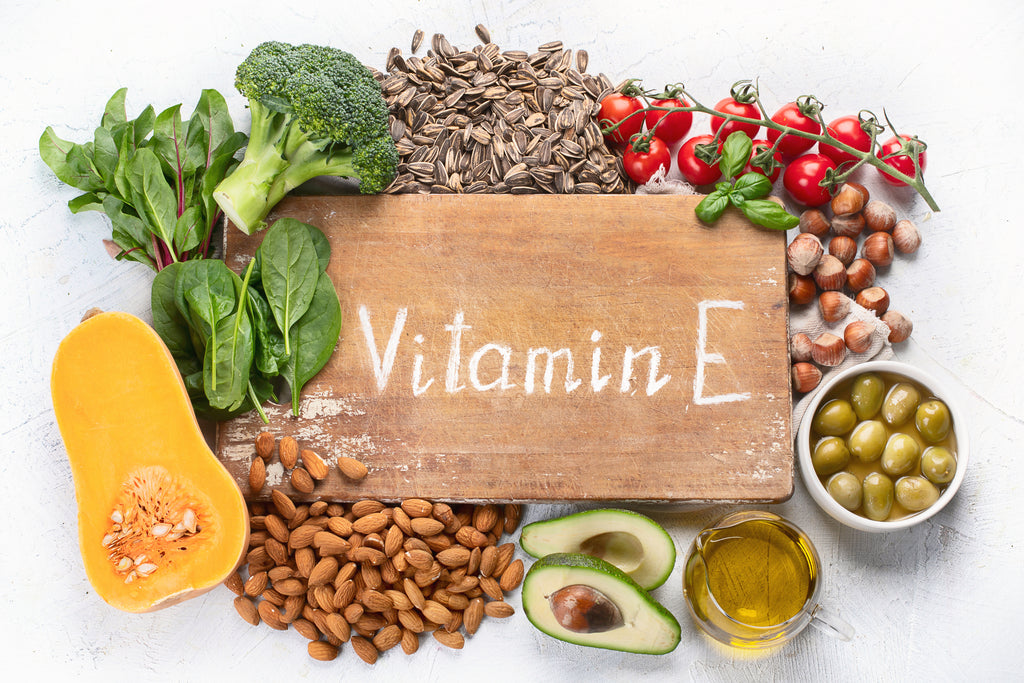Nutritionist’s Top Tips To Naturally Boost Your Collagen Levels

Nutritionist’s Top Tips To Naturally Boost Your Collagen Levels
You’ve probably been hearing more and more about the various benefits of collagen over the past few years. Hailed as the ultimate rejuvenator, collagen certainly is a hot topic in the health and beauty sphere.
But What is Collagen Exactly?
Collagen is the general term given to a group of proteins that helps give a solid structure to our skin, hair, nails, joints, bones, ligaments, and tendons. You can think of collagen as long, rope-like cables that give the skin elasticity and help us better move, stretch and bend our bodies.
Collagen is essentially the body’s most important structural protein that acts as ‘glue’ holding everything together. Thanks to its glue-like properties, it plays a key role in maintaining skin strength and elasticity, helping to keep our skin looking healthy, plump, and youthful.
 You’ve Been Making This Wonder Protein Your Whole Life
You’ve Been Making This Wonder Protein Your Whole Life
When we're young, our body can make all the collagen it needs - this explains why our skin looks firmer and why our bones are nice and strong. Our collagen peaks in our mid-20s, before beginning to naturally slow down and begins to decrease by around 10% every 10 years.
Even the quality of the collagen that already exists in the body begins to decline after our mid-20s! This partly explains why we get wrinkles as we age, why our skin tends to sag, lose elasticity, and the reason why our joints feel increasingly stiff and less flexible as we grow older.
So How Can You Boost Your Collagen Levels Naturally?
Our body can naturally produce its own collagen by breaking down proteins found in food into various amino acids, mainly proline, glycine, hydroxyproline, along with Vitamin C. By ensuring we’re consuming foods rich in these nutrients, we can help facilitate natural collagen production in the body.
 Boost Your Vitamin C Intake
Boost Your Vitamin C Intake
Vitamin C is involved in every step of the manufacturing process of collagen and ultimately helps the body synthesise the collagen needed for healthy skin, nails, and hair.
Since our bodies are unable to synthesise Vitamin C, it’s important to ensure that you’re getting enough from your diet. Eating Vitamin C rich foods, such as citrus foods, green leafy vegetables, papaya, strawberries and broccoli, can help encourage the body to produce more collagen.
 Aim To Get Plenty of Zinc
Aim To Get Plenty of Zinc
Zinc also plays a vital role in collagen synthesis. It’s a cofactor in the production of collagen, which basically means that it activates proteins that are essential for collagen synthesis, which can help keep skin looking younger and healthier.
Legumes, spinach, oats, nuts and seeds such as hemp, pumpkin and sesame are a great addition to your diet and can help increase your daily Zinc intake.

Ensure You’re Getting Enough Vitamin E
Vitamin E is a key antioxidant that protects our cells from getting damaged. Cell damage can occur due to external factors, such as pollution, eating high amounts of processed foods, alcohol consumption, and smoking. Because cell damage is linked to reduced collagen production, Vitamin E plays a key role in protecting our cells and preserving healthy collagen levels.
To help boost your Vitamin E intake, include sunflower seeds, almonds, peanuts, collard greens, spinach, pumpkin and red bell pepper in your diet.
Know Your Proline and Glycine-rich Foods
Both amino acids proline and glycine play key roles in collagen production. Glycine makes up one-third of the amino acids in collagen, making it the most abundant amino acid found within collagen.
Proline-rich foods include cabbage, yoghurt, bamboo shoots, seaweed, sunflower seeds and mushrooms. Glycine-rich foods, on the other hand, include asparagus, cabbage, tofu, seaweed, pumpkin seeds, cashews, whole grains and legumes.
Consider Collagen Formulation Complex
Our vegan-friendly Collagen Formulation Complex capsules are designed to provide you with 100% plant-based ingredients to help support healthy collagen formation. Each capsule contains a blend of antioxidants, including Vitamin E and Vitamin C, as well as key nutrients Zinc and Copper, along with 11 key amino acids. These nutrients are all essential for building and maintaining collagen levels for younger-looking skin.

Riya Lakhani ANutr is a registered nutritionist and health writer with a special interest in plant-based nutrition. She has completed a Bachelor’s and Master’s degree in Human Nutrition, and has developed a passion for writing about all things plant-based.







